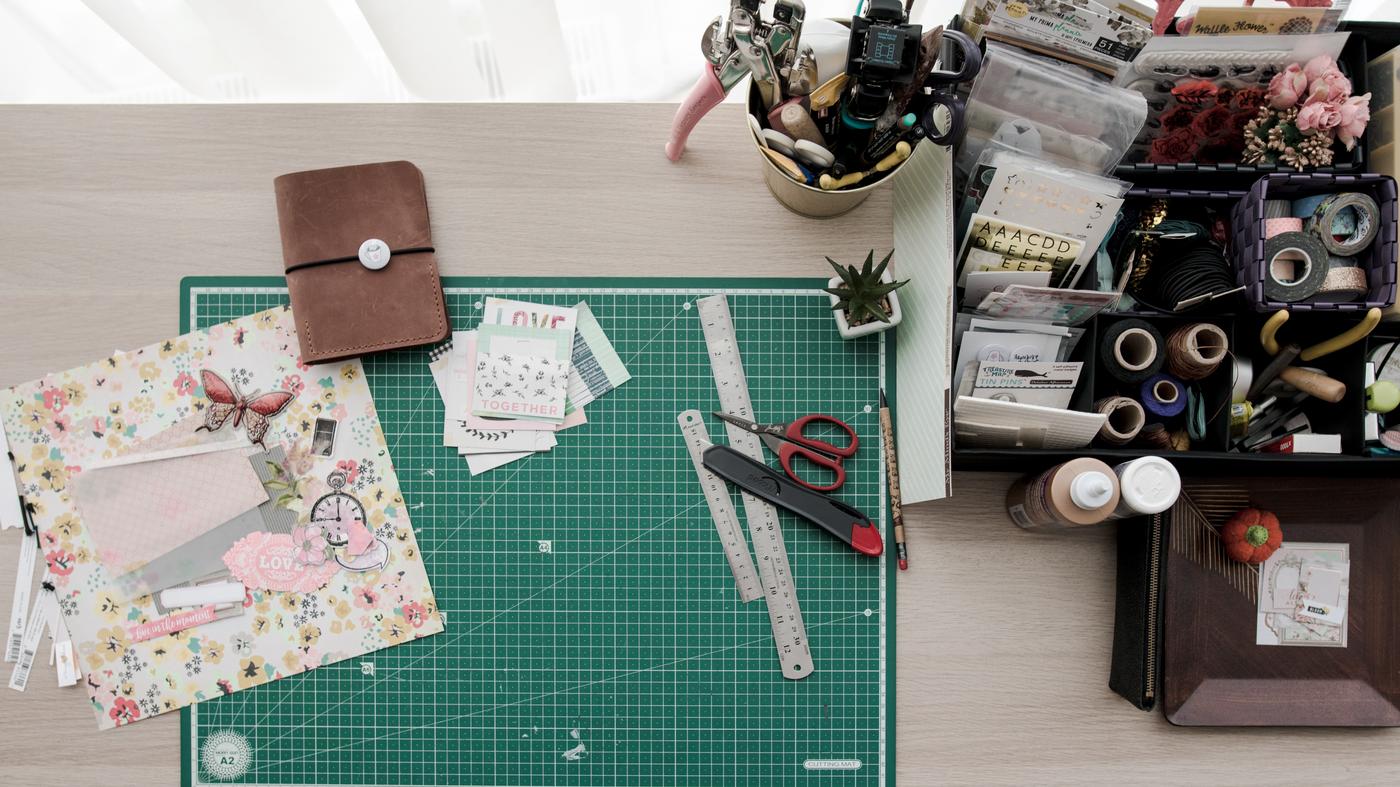If you’re considering a move to freelance, how do you know if it’s the right decision and how can you best prepare if you’re currently furloughed?
Get £50 on us when you open a Tide business account
If you're self-employed, having a dedicated business bank account will make your life a lot easier. With a Tide business account, you can get set up in minutes and start to control your finances in a hassle-free way using their powerful and integrated online services.
Let's go!

Why should I go freelance now?
The government’s furlough scheme has provided a lifeline for many employers and employees at a time when lots of industries have slowed right down or even ground to a halt. The scheme is set to finish at the end of October when it’s likely that there will be more redundancies on the horizon.
If freelancing was already on your radar or if you’re worried you might get made redundant then it could be an option you want to consider. Even before coronavirus, we were moving towards a ‘gig economy’ and the virus has only accelerated businesses getting used to working more remotely. Businesses that have had to make staff redundant may well be looking for access to more flexible resource options.
If you’re on furlough at the moment, use your time wisely to plan your freelance move, grow your confidence and gain experience. You may not get the chance to build your freelance business up on the side to the level you’d normally want to before you leave your job so it’s more important that you prepare to hit the ground running. If you do end up staying in your job for longer then it’s no loss.
What should I freelance in?
Consider these seven questions when deciding what you should offer as a freelance service.
- What do I currently do for a job?
Often the right answer can be right in front of your nose. It can be tempting to think that you’d like a change but usually it’s best to go with your area of expertise and where you have the contacts. - Do I want to follow my passion?
Following your passion isn’t the same as being passionate about your work and sometimes it’s best to leave your true passion as your passion. - What do I do best?
Drill down to what you are really good at. If you currently work in PR, what aspects of it do you excel at more than others? - Who can I provide a service for?
What types of clients do you think you can offer the most value to?
- What can I charge for?
Make sure whatever service you choose to offer you can charge enough for it. Does your type of client normally have money to spend on this service? What results will they get in return? - How much do I need to earn?
Do the maths and work out what you need to earn and therefore what you’ll need to charge. - What will my niche be?
Contrary to the belief of many businesses, having a niche is unlikely to reduce your ability to get work. It will be easier to reach prospective clients for a business who specialises in writing blog posts for vets than one that does “marketing”. Your niche might be your service, style or industry (or a mixture).
What qualities do I need to succeed as a freelancer?
As a freelancer, you don’t need to be the best graphic designer, writer or (insert your service here) in the world. Of course, you’ll need to be skilled at your craft but there are other qualities that are more important if you are to be a successful freelancer. See how many of them you think you have.
- Resilience
The freelance rollercoaster is real. Weeks, days and hours will be filled with highs and lows and you’ll need to learn to ride it without wanting to get off. - Reliability
Be clear with a client as to what you will deliver and deliver what you say you’ll deliver. - A willingness to learn
There isn’t an HR department to put you on training courses and the world of business is constantly evolving so you’ll need to be committed to keeping up and getting better at what you do. - The enjoyment of one’s own company
Yes, there are great freelancer networks and yes, you can find a cool co-working space but there’s no avoiding that you’ll have to spend a fair bit of time on your tod and making decisions with no one else to run them by first. - Good communication
Be clear, be concise, be confident. Find common ground with clients quickly. - Relationship building
People work with people they like so having a friendly disposition is a big requirement. Whereas the office is a prime spot for having a good moan, to be a good freelancer it’s best to always err on the side of positivity. - Going the extra mile
Your best quality clients will come from referrals and for more referrals, you’ll need to make sure you do work worth talking about, not just the bare minimum agreed. - Self-motivation
No one will tell you off for being late or leaving early which is one of the biggest blessings of freelancing but can also be one of the hardest things. - Good timekeeping
You’ll need to turn up to meetings on time, call people when you say you will and hit deadlines, no excuses or there’ll be no repeat business. - A willingness to talk about money
You will need to send quotes, send invoices and chase invoices. People will ask you how much you charge and you’ll need to be able to confidently tell them. - Using your gut instinct
The ability to say “no” is one skill that most freelancers will admit to not possessing. But learning from your mistakes and in time turning down work and clients that just don’t feel right will keep you sane.
“I wish I’d known earlier how good it is to say no to clients you don’t like.”
Andrew Miller, Wedding Photographer
How do I pick up my first freelance gigs?
To begin with let’s look at how you won’t pick up your first gigs.
❎ Handing out business cards
❎ With a shiny new website
“You don’t need a website or business cards, so save your time and money.”
Russel O’Sullivan, SEO consultant
That’s not to say you should never have a website. But these tend to be two of the top ways that new or wannabe freelancers like to distract themselves from taking actions that are much more likely to get them their first clients. These are by:
✅ Sending personal emails to all your contacts telling them what you’re doing and asking them if you can help them or anyone they know.
✅ Building your networks online.
✅ Nailing your elevator pitch and telling everyone you meet what you do.
✅ Telling current or old colleagues and clients (where it’s appropriate to do so).
✅ Picking up a furlough role that has the potential to lead to being a paid client.
Should I be a sole trader or a limited company?
Unless tax and using accounting software is your skillset, it’s advisable to get an accountant as early as possible who will tell you everything that needs to be done to set up your business and register for tax.
Freelancers seem to be pretty divided on the sole trader versus limited company stance because there are advantages and disadvantages of both and it will depend on how much you anticipate earning.
As a limited company, you will need to submit annual company accounts but your business will be kept as a separate legal entity to yourself meaning your personal assets are protected.
Either way, you should still look into and buy yourself some business insurance.
Mistakes to avoid when starting out
We asked ten freelancers what they wish they had known when they first started out.
“Don’t be afraid to charge what you’re worth. And tap into your existing network, they might give you an early break!”
Keith McGuinness, Financial Copywriter
“Believe in yourself, don’t wait for other people to do it.”
Michele Webber, Visual Artist
“Imposter syndrome hits even the most confident of people but the important thing is that you push through it.”
Lyndsey Lee, Virtual Assistant
“Spend 50% of your time working on your business, not just in it.”
Kim Hobson, Copywriter
“You will be successful far quicker if you befriend a few of your fellow freelancers rather than viewing them as competition.”
Nick Jones, Proofreader
“Work out what you can expense (and can’t), how to charge for your worth and how to pitch in a way that your ideas aren’t taken on board… without you.”
Binny Shah-Patel, Binny Shah-Patel Social
“I never expected clients to be so loyal and so kind. I have clients who have supported me and worked with me for over 20 years, and that’s a joy.”
Jim Harvey, The Message Business
“A large proportion of your friends and family won’t comprehend why you’ve made this decision seeing it either as flaky or risky or both! Expand your network and spend time developing your ideas with those that understand your why and you’ll experience amazing growth.”
Helen Ball, At Your Best Move
“Everyone is a valuable contact.”
Emma Crabtree, Virtual Assistant
“I wish I’d appreciated from the start how important relationship building is as a freelancer, with fellow freelancers, old contacts, the business community. It’s your lifeblood in terms of both work and day-to-day sanity.”
Genevieve Brading, Copywriter, Writability
Share this content

Brought to you by:
AAT Business Finance Basics
AAT Business Finance Basics are a series of online e-learning courses covering the core financial skills every business needs. They draw from AAT’s world-leading qualifications and will quickly build your knowledge on key topics including bookkeeping, budgeting and cash flow.
Visit partner's website









